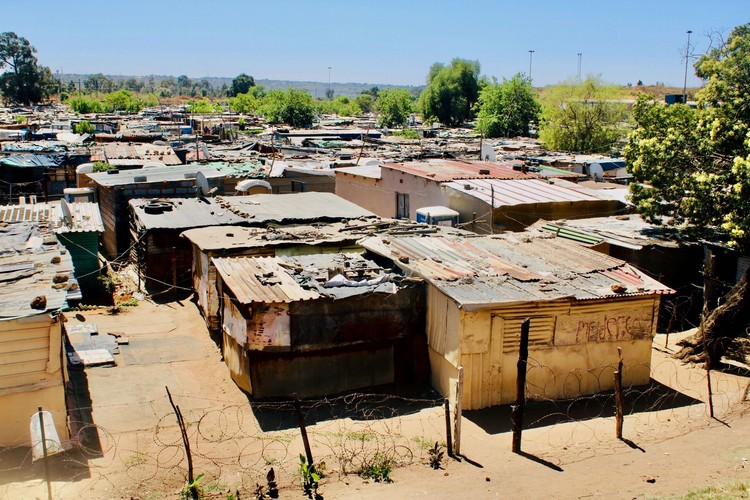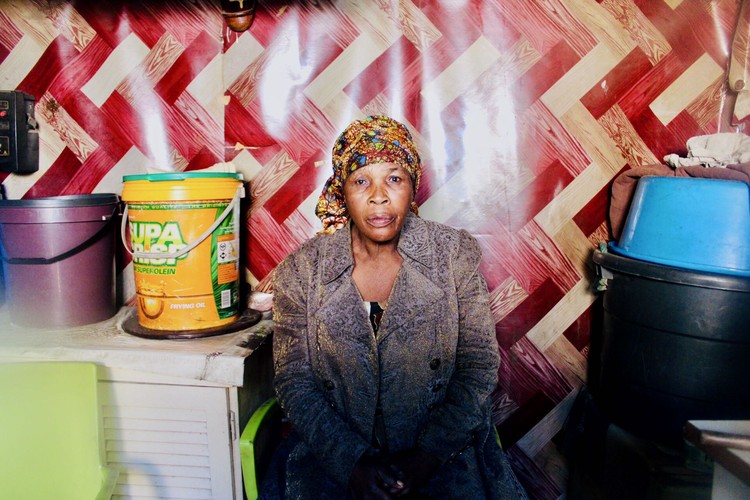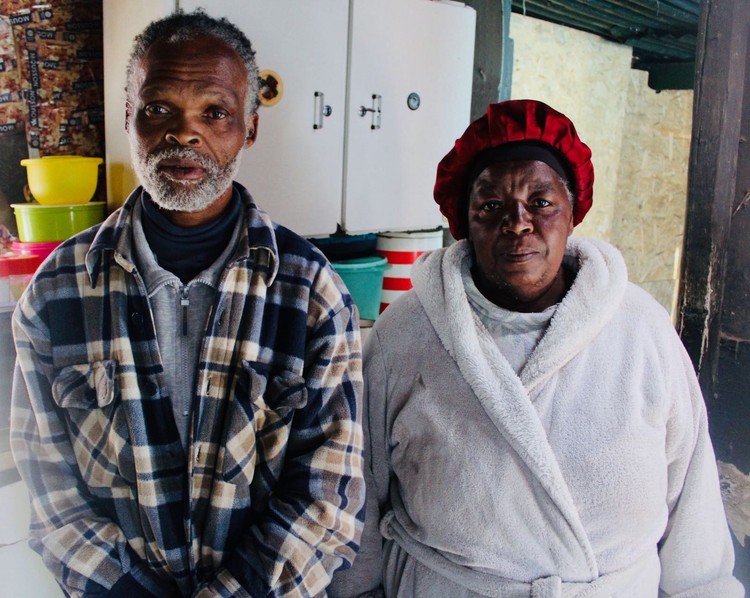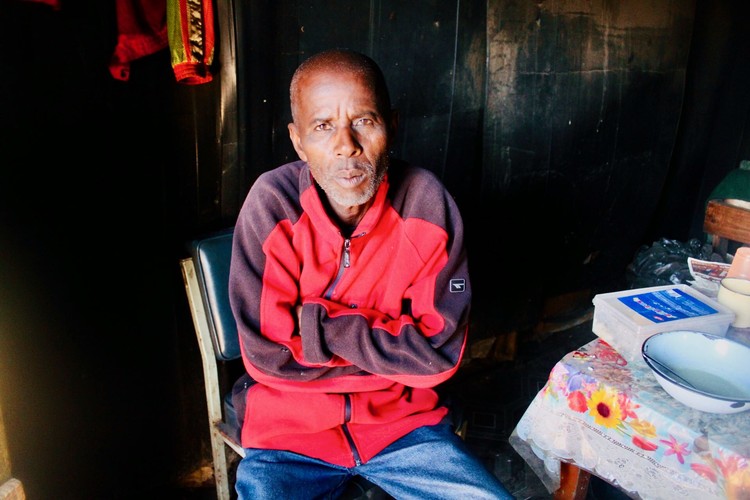Germiston informal settlement neglected since dawn of democracy
“We have rats that are as big as cats here”
The crowded Good Hope informal settlement in Germiston has about 3,000 households and was established in 1995. Photos: Kimberly Mutandiro
On Tuesday, residents of Good Hope informal settlement marched to the City of Ekurhuleni offices to protest over a lack of services and development after three decades of democratic rule.
The crowded settlement in Germiston has about 3,000 households and was established in 1995, when the municipality relocated about 700 families from Bedfordview.
Benedict Leapheane, who is in her mid-sixties, is in ill health. She shares a chemical toilet with 15 families, has to fetch water from a standpipe with a bucket, and without electrification, uses a paraffin stove. Stinking, stagnant water from a blocked drain pools around her house.
“We have rats that are as big as cats here,” she says. “I hardly sleep at night from the sound of rats playing on my roof, as if it’s Bafana Bafana playing football. The municipality should clean up our area and give us services. With time, I will save up to build my own house.”
Residents say they were promised RDP houses.
In 2016, Good Hope became the first branch outside of KwaZulu-Natal of shack dweller movement Abahlali baseMjondolo.
“All we want is to have some dignity, and I think it’s not too much to ask,” says Relebogile Msweni, community chairperson.
He said promises of land for relocation, development and houses have been repeatedly made over the years. Some quantity surveying was even carried out. But nothing has come of any of these plans.
A memorandum delivered to the City on Tuesday complained of blocked communal drains and uncleaned chemical toilets, and asked why the area was not benefiting from the City’s integrated development plan.
Bongani Makwanya, a community representative, was born when the settlement was established and he now has his own children. He said they are just two kilometres from the municipal offices and yet they have watched electrification and improvements in Daveyton and flats built in Tembisa, but nothing in Good Hope.
“Children in our community are growing up without even knowing what a TV is because we have no electricity. Yet our country has been free for 30 years,” said Makwanya.
City of Ekurhuleni spokesperson Zweli Dlamini said, “Adequate services are provided in the form of [446] chemical toilets, water, waste removal, grading of roads, mobile clinic, rodent control to name a few.”
Dlamini said the long-term plan was to build 850 RDP houses “with full services” in the area. Designs had been submitted for approval and once land had been found for the residents to live on during construction, the engineering works could begin.
Meanwhile, the roads and storm water department had been instructed to open the drains regularly, Dlamini said.
Benedict Leapheane, who is in her mid-sixties, is in ill health. “We have rats that are as big as cats here,” she says.
Meki Thembeni and partner Misheck Dala have lived in the settlement for 28 years. They live with their children and grandchildren in a two-roomed shack. Members of the household take turns waiting outside to give each other privacy to wash.
Vincent Msimango, 71, said, “All hopes of getting houses in our settlement have been lost.”
Support independent journalism
Donate using Payfast

Don't miss out on the latest news
We respect your privacy, and promise we won't spam you.
Next: The fate of the GNU will depend on what it does to fix collapsing municipalities
Previous: More than 17 million people applied for the R370 grant in September
Letters
Dear Editor
The is still no changes so I write this to express my concerns about the lack of electricity in our community of Good Hope beside other things. As someone who grew up here, it's disheartening to see no significant changes despite the progress in our province.
We're proud to be part of a province that hosted the G20, but it's hard to reconcile that with the reality on the ground. While we're being introduced to AI and online schooling, our community still struggles with basic electricity access. It's like we're stuck in a different era.
Government officials often speak about progress on TV, but it's demotivating when we don't see it reflected in our daily lives. Schoolwork suffers when it has to be submitted online, and it's not fair to our kids.
We're not asking for much. We want electricity, a basic necessity in today's world. It's essential for education, healthcare, and overall quality of life.
I hope you'll consider our plea and work towards bringing electricity to our community
© 2024 GroundUp. This article is licensed under a Creative Commons Attribution-NoDerivatives 4.0 International License.
You may republish this article, so long as you credit the authors and GroundUp, and do not change the text. Please include a link back to the original article.
We put an invisible pixel in the article so that we can count traffic to republishers. All analytics tools are solely on our servers. We do not give our logs to any third party. Logs are deleted after two weeks. We do not use any IP address identifying information except to count regional traffic. We are solely interested in counting hits, not tracking users. If you republish, please do not delete the invisible pixel.




